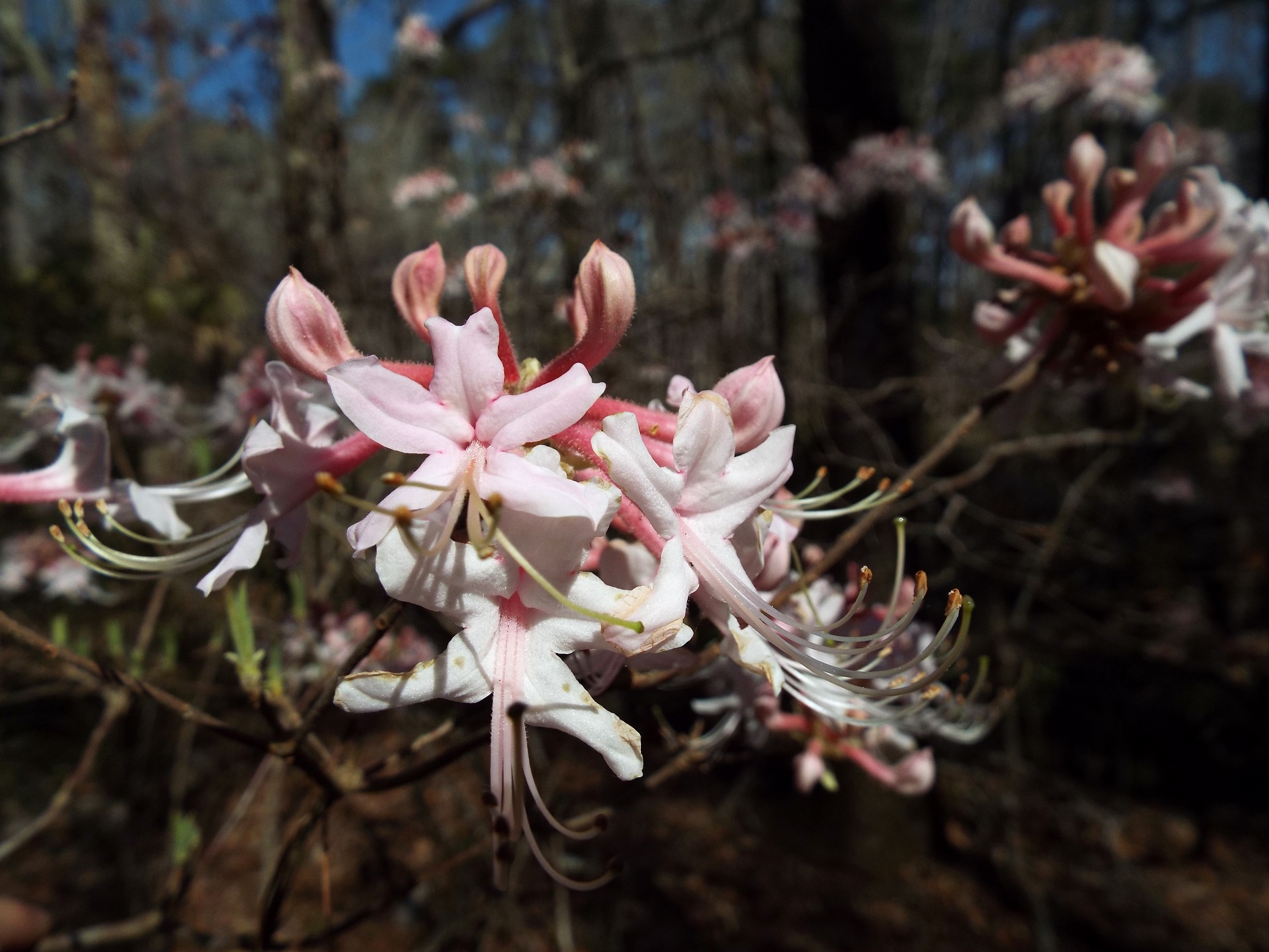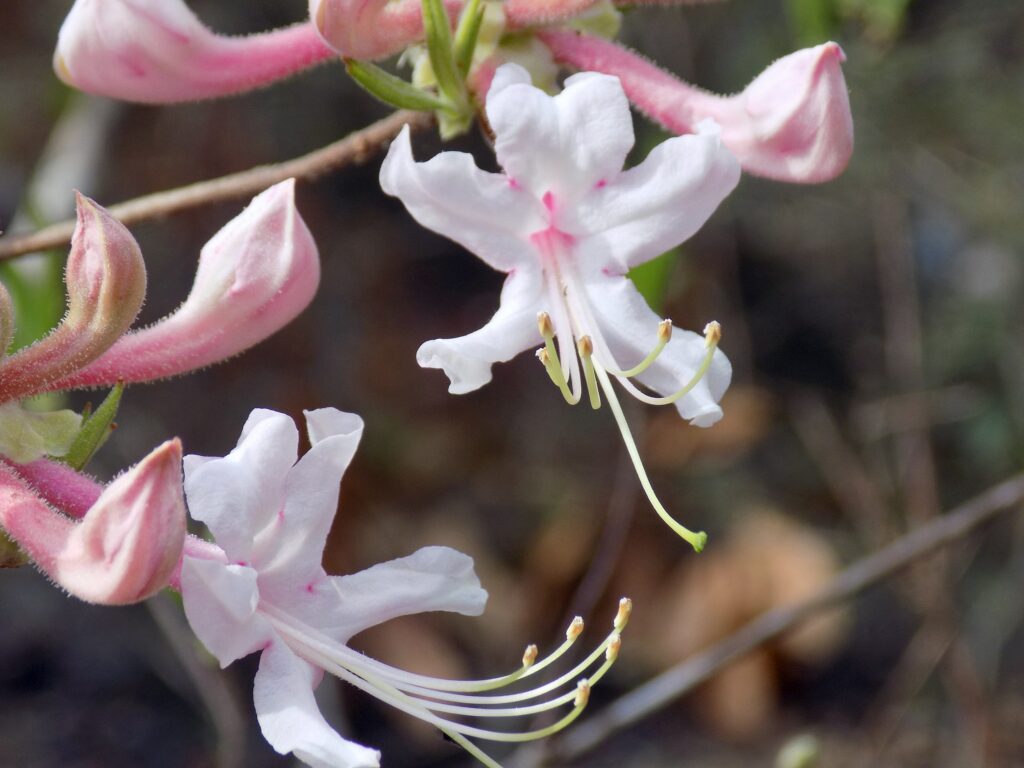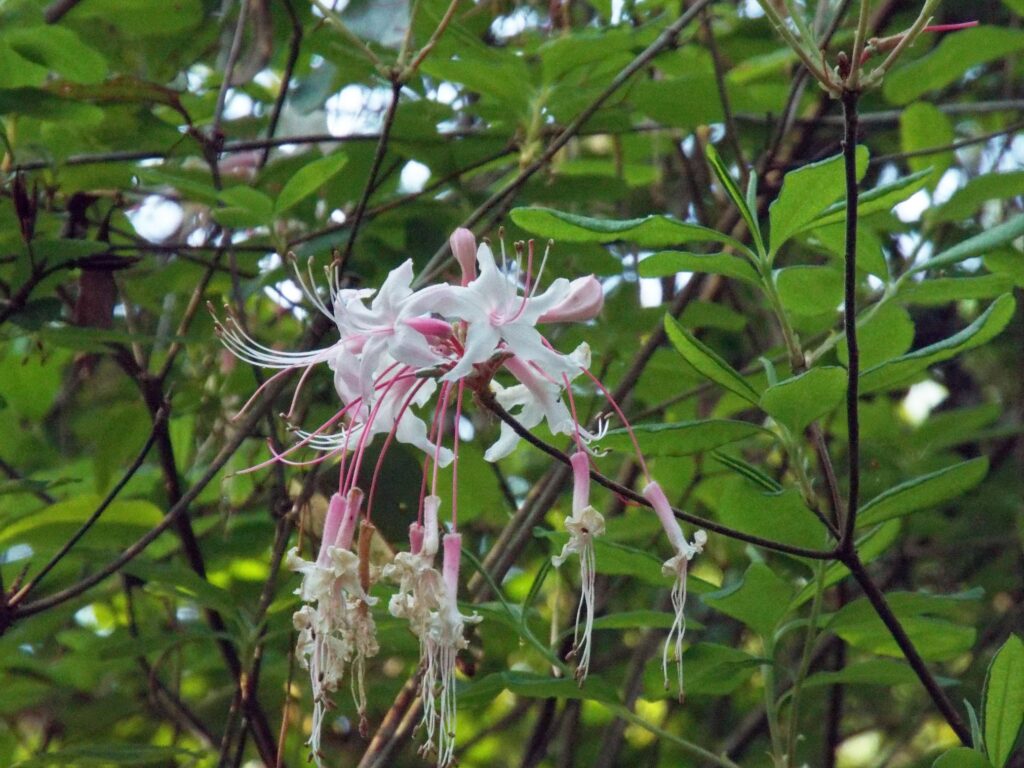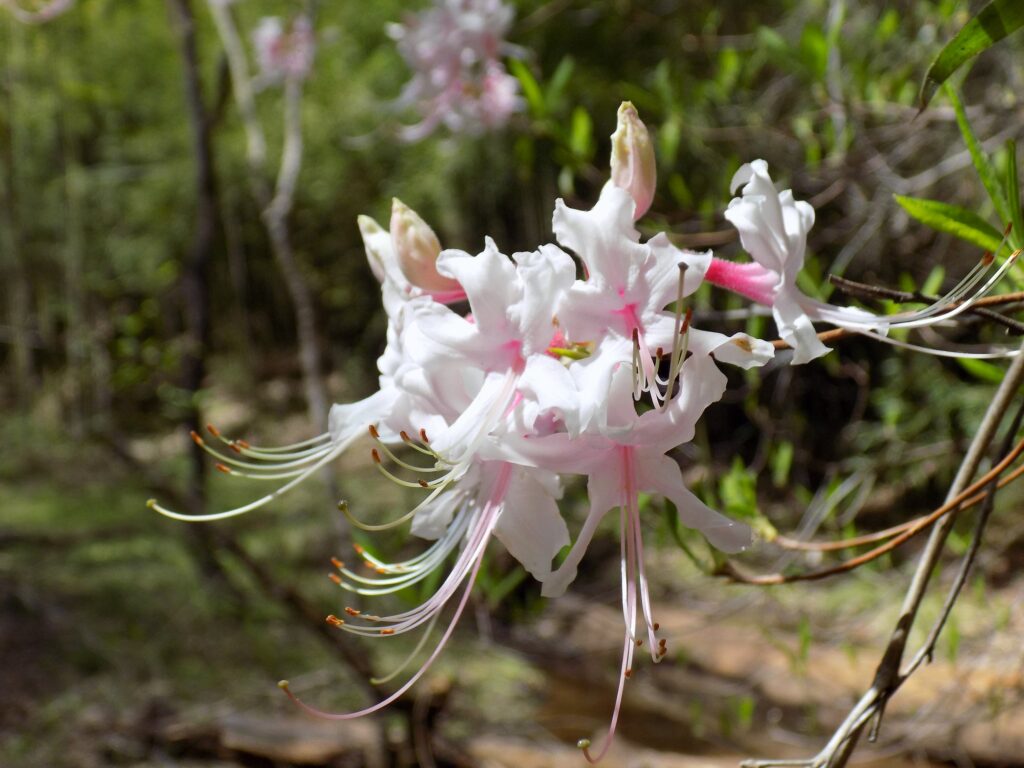



This week we have the pastel pink heralds of the Lowcountry spring, our native Azaleas (Rhododendron atlanticum, R. canescens, & R. viscosum).
We have three species of native Azalea found in the Lowcountry, Dwarf Azalea (R. atlanticum) Mountain Azalea (R. canescens), and Swamp Azalea (R. viscosum). Mountain Azalea is the most common species you’ll encounter on Edisto Island. Despite the common name, Mountain Azalea isn’t found in the mountains of South Carolina. It’s found below the fall line throughout the coastal plain and the same goes for the other two. All three species are open shrubs with simple alternate leaves and gnarled limbs. Azaleas bloom in late winter through spring. Their pink-white trumpet flowers burst forth from the darkness of the understory peppering the dreary winter woods with the new life of spring. These floral horns trumpet the arrival of spring, style and stamens reaching into the crisp cool air. Azaleas, both native and exotic, rely on bees for their pollination. Bumblebees, Miner Bees, and Carpenter Bees provide the service in exchange for a sugary reward. Native Azaleas spread clonally through their roots and often form small thickets of twisted stems. Azaleas of all types belong to the Heath family, Ericaceae. The Heaths include the Azaleas, Mountain-laurels, Fetterbushes, Blueberries, and Huckleberries.